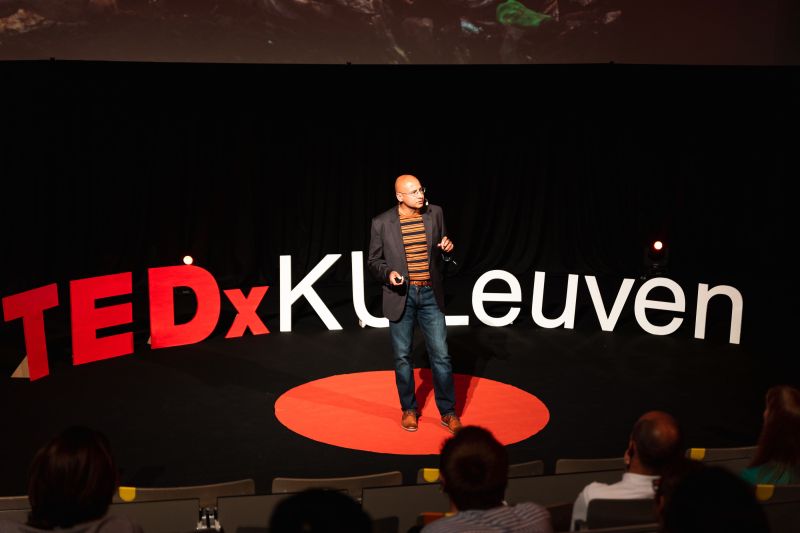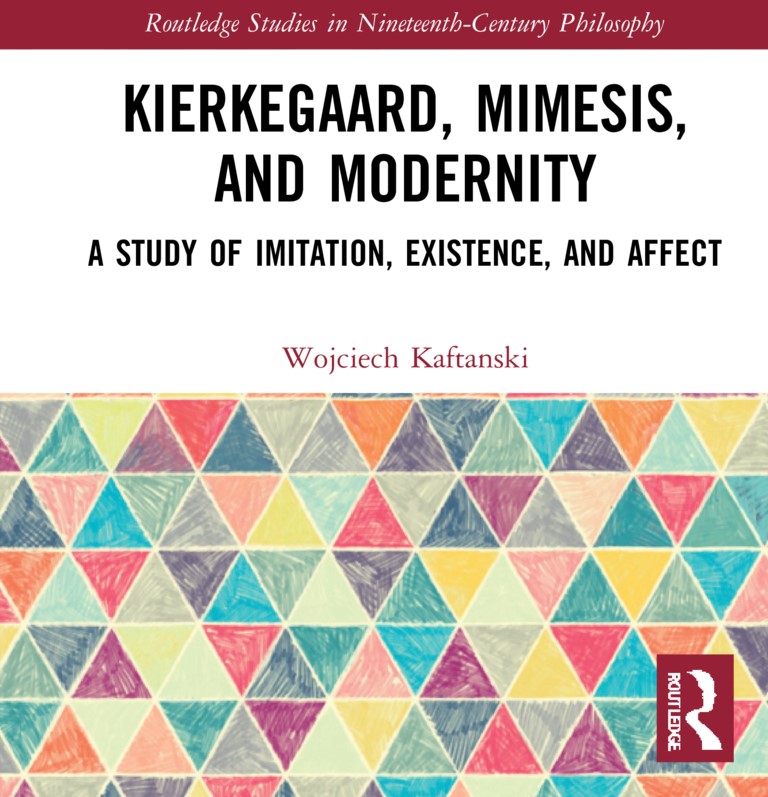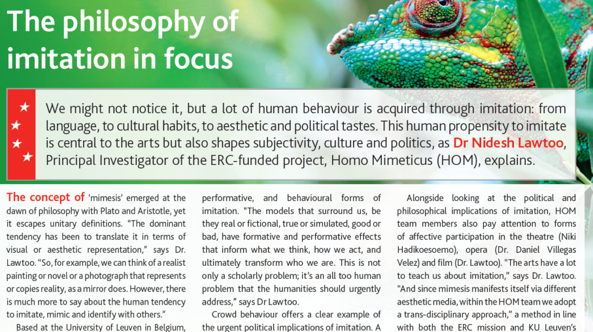What a better place to conclude the Homo Mimeticus project than the ancient Agora of Athens were philosophy was born? It is in fact here that Socrates among many other philosophers conceived of philosophy not only as a love of wisdom but also as a way of life, as Pierre Hadot would say.
Tag Archives: philosophy
HOM Video 10: Ancient Foundations for Mimetic Studies I
In order to bring the Homo Mimeticus project to an end and launch the field of mimetic studies, Nidesh Lawtoo (prof. at Leiden University) re-turns to the place where theories of mimesis began. Shot on the Acropolis in Athens, Greece, ep. 1 recalls that philo-sophia, or love of wisdom, is born out of a mimetic agon with a mythic wisdom that found in Athena a primary source of inspiration
HOM Videos ep.9, The Neuroscience of Mimesis: Vittorio Gallese. II. Mirror Neurons Now & Then
In this second episode of HOM Videos on The Neuroscience of Mimesis, Vittorio Gallese discusses with Nidesh Lawtoo important precursors of the discovery of mirror neurons in aesthetics, phenomenology and the tradition of the mimetic unconscious: from Nietzsche to Lipps, Merleau-Ponty to Aby Warburg, Charles Féré to Pierre Janet, a number of fin-de-siecle philosophical physicians were sensitive to the mirroring relation between movement and sensation later confirmed by the discovery of mirror neurons.
Keynote Dialogue btw Jane Bennett & Nidesh Lawtoo: From Homo MImeticus to Trans-Specied Mimesis
In this dialogue, Jane Bennett and Nidesh Lawtoo experiment with a mimetic genre to reflect on the vibrant interplay of human and nonhuman forms of communication. What style of language best approximates this mimetic entanglement? What role do non-verbal mimicry and gesture play in the birth of homo mimeticus? These are some of the questions on trans-specied mimesis the dialogue seeks to explore by going beyond nature and culture in the heterogeneous company of Nietzsche, mirroring bodies, and middle verbs.
Homo Mimeticus: Nidesh Lawtoo @ TEDx

To conclude the Homo Mimeticus Project, PI Nidesh Lawtoo takes the mimetic turn on the TEDx stage, where mimesis has been at play for quite some time. Addressing the timely question, “how to (re)structure the (de)structured,” Nidesh takes us on an untimely philosophical journey–from children’s mimicry to Socrates’ dialogues, emotions to emojis, the Greek stage to the TED stage–to show that imitation is constitutive of an original species he calls, homo mimeticus.
Nietzsche on Mimetic Metamorphoses
For Nietzsche philosophy was an embodied activity that should lead to a metamorphosis of the spirit. In Part 1 of this talk, shot in Sils Maria, Switzerland, Nidesh Lawtoo situates Nietzsche’s “Three Metamorphoses of the Spirit” that open Thus Spoke Zarathustra against the Alpine summits and paths that inspired Nietzsche’s meditations in the first place. In the process, mimesis turns out to be central for Nietzsche’s reevaluation of morality, subjectivity, as well as to concepts such as the “overman” and the “eternal return of the same.”
Kierkegaard, Mimesis, Modernity by Wojciech Kaftanski

In this dazzling new book, HOM associate member Wojciech Kaftanski offers a timely, important, and original contribution to the mimetic turn. He convincingly shows how Kierkegaard’s existential mimesis interlaces aesthetic and religious themes, including the familiar core concepts of imitation, repetition, and admiration as well as the newly arisen notions of affectivity, contagion, and crowd behavior. Available for pre-order at Routledge.
EU Research Interview: The Philosophy of Imitation in Focus
In this interview with EU Research, Nidesh Lawtoo explains the main aspects of the HOM project by outlining, in broad and accessible strokes, the good and bad effects of unconscious mimesis investigated by the HOM team in areas as diverse as philosophy, the arts, and politics. He argues that the power of mimesis to transform subjectivity is “not only a scholarly problem, but a human, all too human problem.” Full interview available here. 
